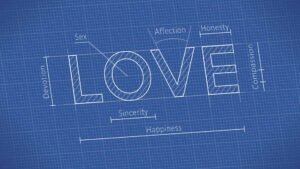Navigating the Storm: Understanding Conflict in Relationships
Conflict. Fighting. Yelling, screaming, perfect storms (enter that catchy Taylor Swift song here).
There is nothing worse than feeling misunderstood, undervalued, or unappreciated by your romantic partner. It’s one thing to argue with your best friend or sibling, it’s a whole other thing when you’re arguing with the person you share your most intimate parts with.
But what if I told you that conflict can be healthy? Yup, it’s true. Conflict can be healthy, as long as you’re doing it right.
A LIFE LESSON IN CONFLICT
A while back, a client told me that she and her boyfriend of 2 years had never, ever experienced a disagreement. Internally, I saw this as a red flag, but didn’t want to be a buzzkill so I kept my thoughts to myself. A short while later, their relationship ended. It was the kind of painful ending that tears people in two and takes years to recover from.
After reflecting on their relationship, she realized that she did not express her needs to her partner for fear of starting an argument. She was stuck in the euphoria of relationship bliss and was fearful of disrupting their tranquil state. But by ignoring how she was feeling, she missed opportunities to communicate her needs and grow closer to her partner. She was left wondering… how do I stop this from happening again?
THE BENEFITS OF CONFLICT
If we remove the strong emotions from the act of arguing, we can look at the benefits and growth opportunities conflict can provide. It’s important to remember that no two people think and act the same, which means that we will all disagree with each other at some point.
When conflict arises and you engage in the disagreement in a healthy, respectful way, you get the opportunity to understand yourself and your partner’s needs on a deeper level. We can then understand and enforce boundaries, strengthen communication styles, and build a strong foundation for intimacy and vulnerability by sharing our thoughts and feelings openly.
THE HARM OF CONFLICT
While expressing your differences has the potential to be healthy, conflict can also be harmful. Harmful conflict can manifest in various ways, such as verbal or physical aggression, hostility, breakdown of communication, erosion of trust, and damage to relationships.
It is extremely important to note that conflict with a partner should never, ever be escalated to any form of abuse, whether physical, verbal or emotional. Conflict should provide an opportunity to learn and grow, and should never result in a power play.
For a visual reference, take a look at the image below. Here, you will see two very different situations: a couple fighting with each other versus a couple looking at the disagreement and working to find a resolution together as a team. Now THIS is healthy!

A MANTRA TO REMEMBER
I’ve heard Dr. Orbuch say “sweat the small stuff” in multiple interviews and I’ve always loved it. It’s simple, straightforward advice that you can commit to throughout your relationship. Heck, you can even write it on a sticky note and paste it onto your bathroom mirror to help you remember.
What does Dr. Orbuch mean by “sweat the small stuff”? She simply means that when you’re feeling something don’t ignore it. Communicate with your partner in a loving, healthy way.
As an example, if your partner forgets to call you because they’re running late coming home from work, tell them. No, I don’t mean in an emotional or frustrated state. After ensuring that they are not stressed from the long day, try sitting down with your partner, face them, and say “I completely understand that work kept you late. I am here to support you in your career. Next time, it would mean a lot to me if you sent me a text to let me know you’re running late.” When you share how you feel and what you need from your partner from a place of love and vulnerability, your bond has the opportunity to grow stronger.
FIGHT THE GOOD FIGHT
After two decades of marriage, I found myself needing to improve my own skills in the conflict department. In the early years of my marriage, I found myself forgetting all the important steps to healthy conflict, especially while raising two kids, working opposite schedules than my partner, working full-time jobs and trying to find time to cook dinner. I would go from a patient, communicative wife to a bundle of stress and tears when any conflict presented itself.
Then I found The Gottman’s Four Horsemen of the Apocalypse. The Gottman’s teach us which areas of conflict can be most harmful and how to handle the areas in a healthy way. I even have their PDF printed and framed in my home to remind me of this lesson.
While I am nowhere near perfect (and no one ever will be), I can confidently say that the more we learn about healthy conflict, the stronger and healthier our relationships can be. And by working to understand this very important topic now, you are paving the way for a beautiful connection in your future.
One final note: If you or anyone you know is experiencing any form of abuse, please contact the National Violence Hotline by visiting their website at thehotline.org.
Share this article
Follow us
July 2, 2025
July 2, 2025
July 2, 2025
July 2, 2025






